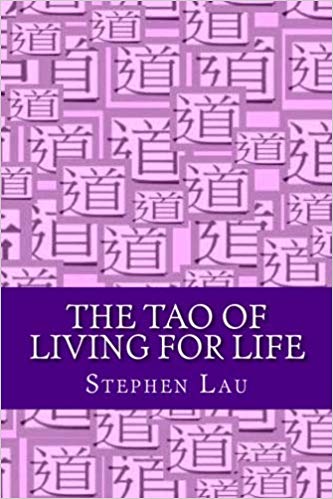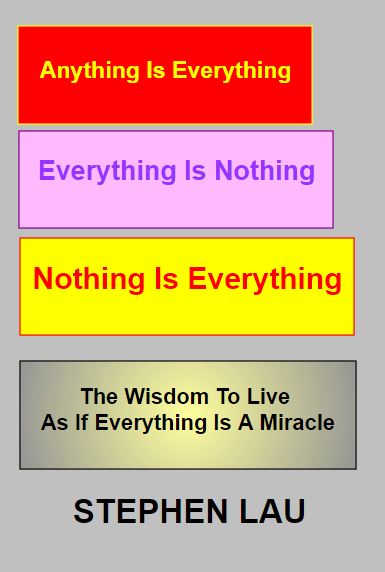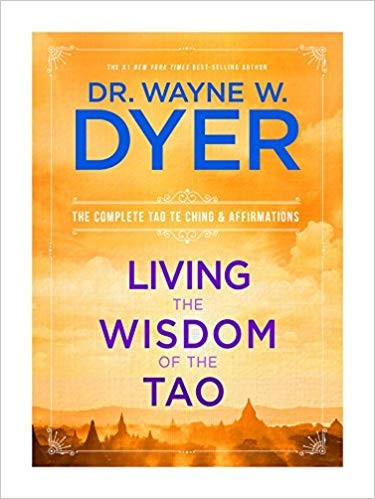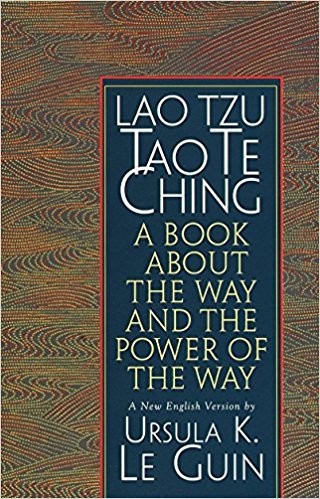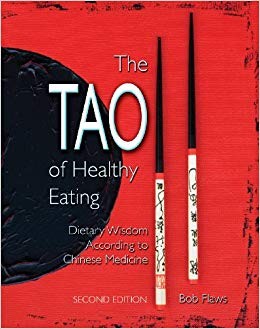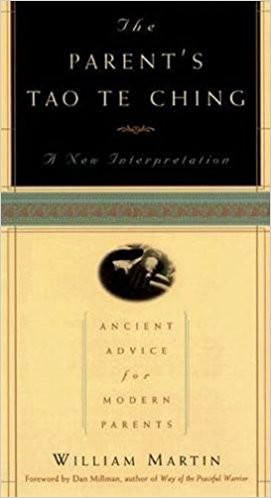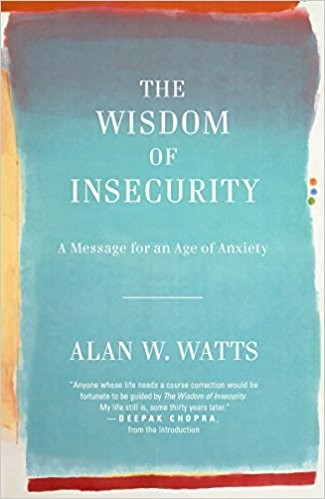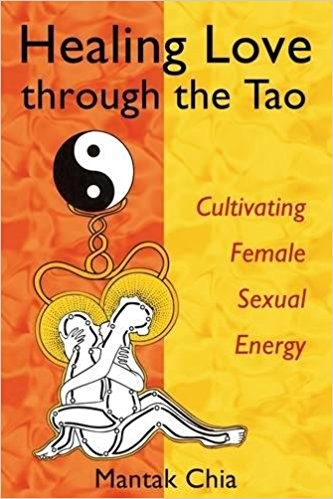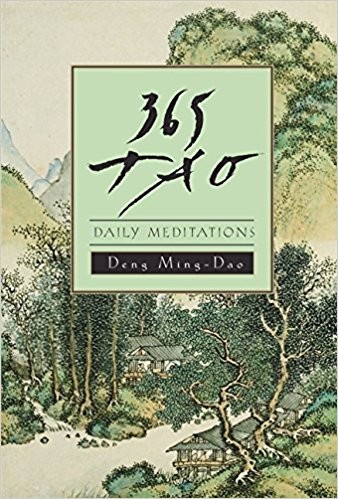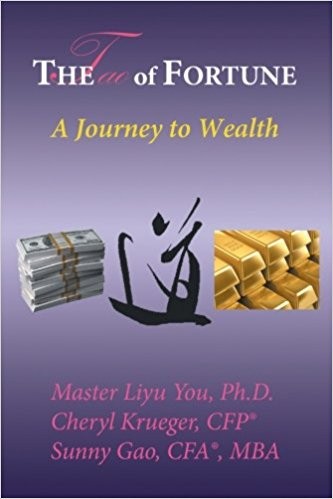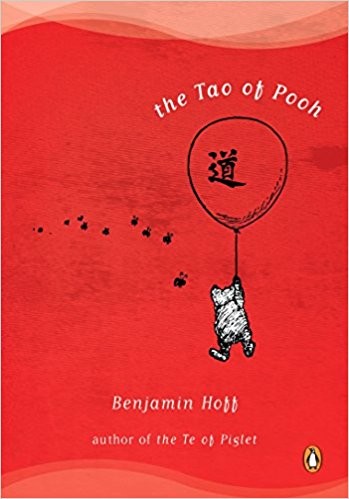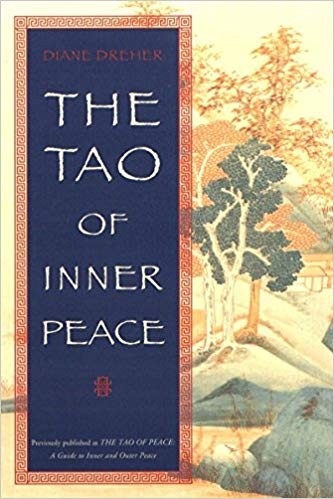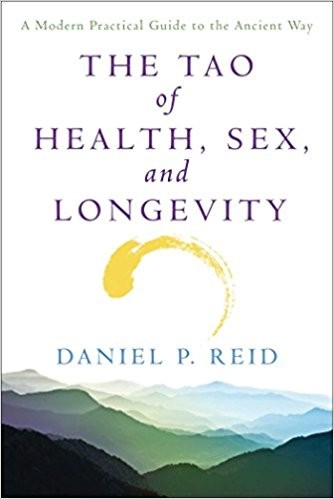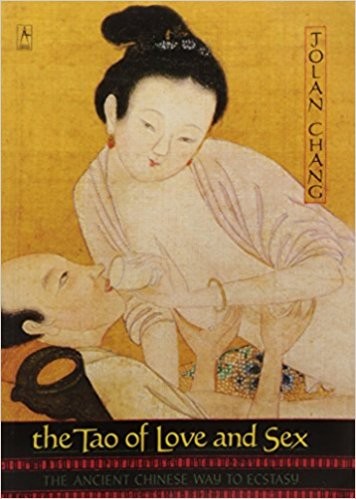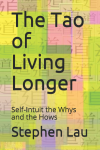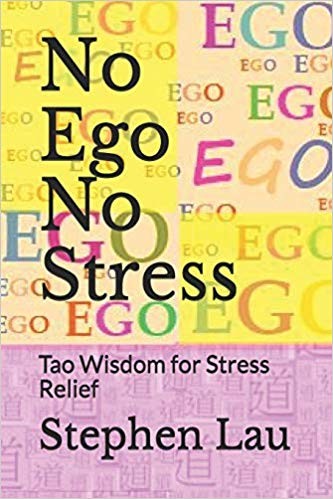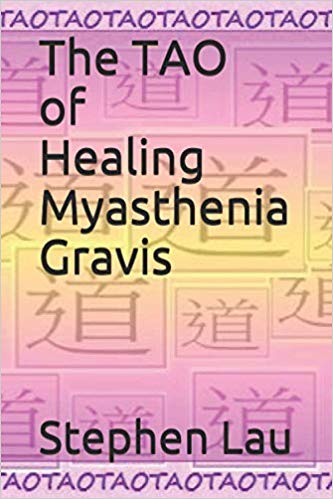





BLOG
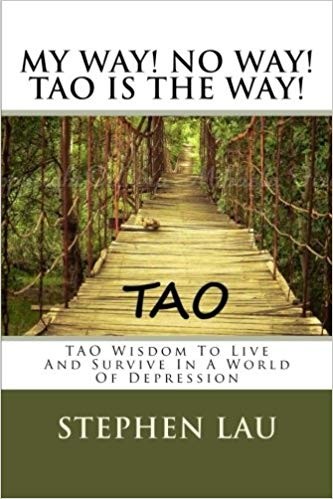
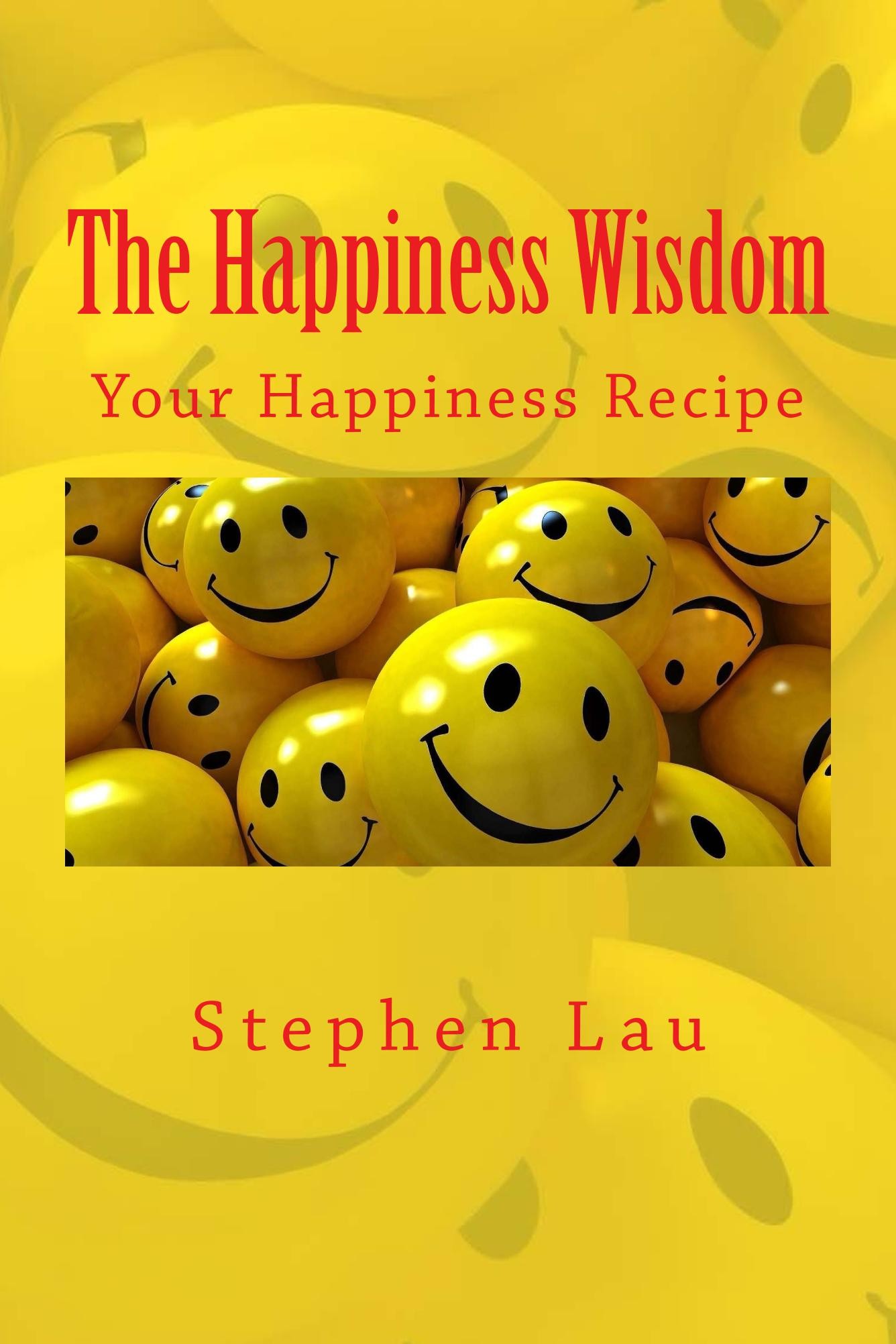
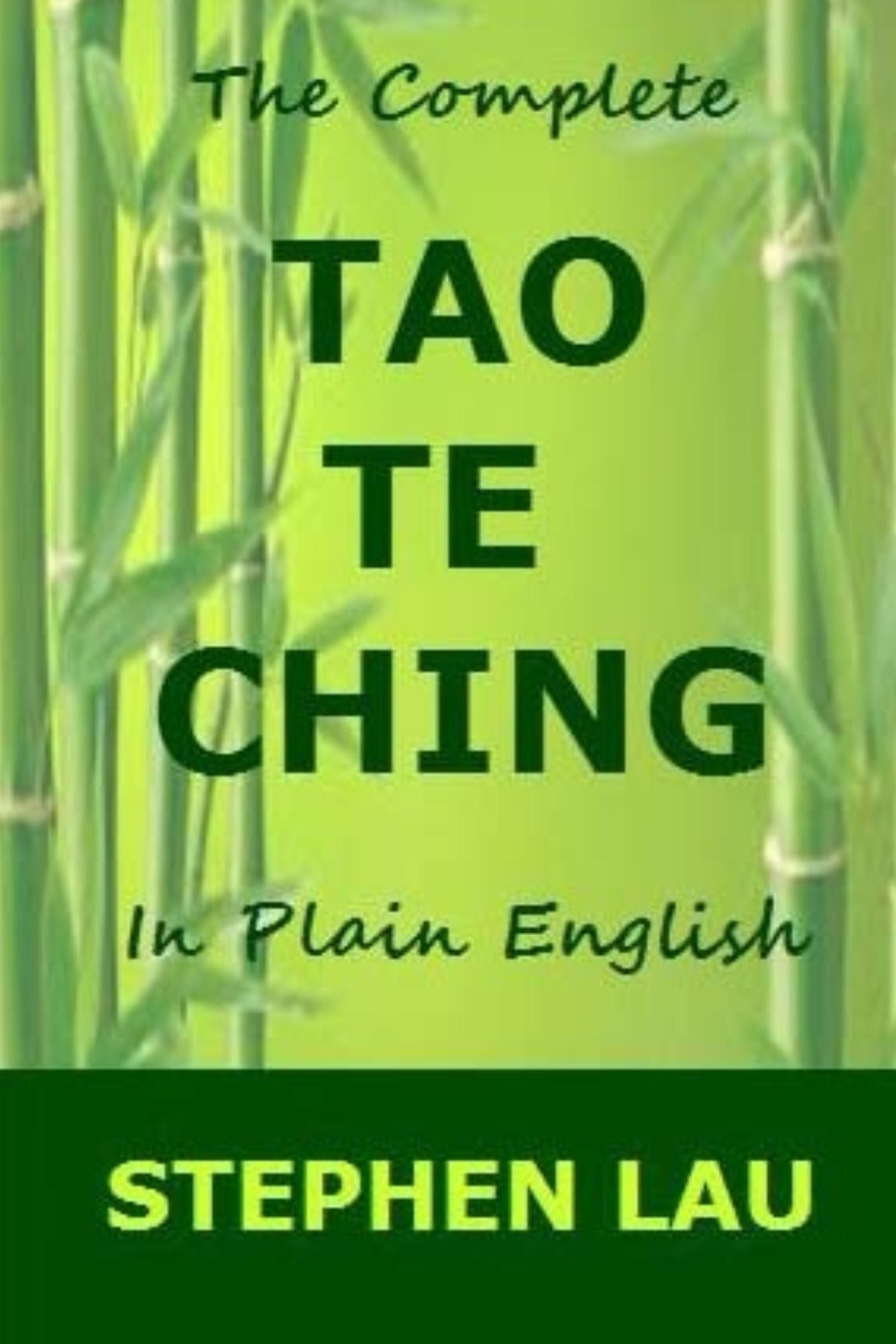
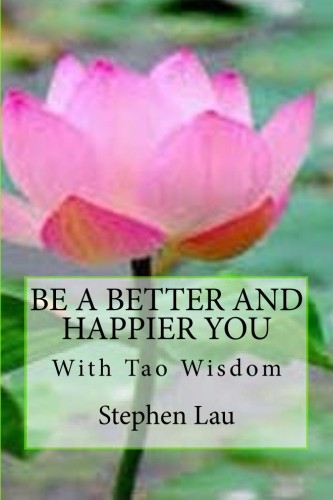

BLOG:
The healing
BLOG:
The living tips
BLOG:
The wisdom books
BLOG:
The new way of life
BLOG:
The better English
The healing
BLOG:
The living tips
BLOG:
The wisdom books
BLOG:
The new way of life
BLOG:
The better English
The TAO
Healing begins with the mind first, and not the body. Get the TAO wisdom to heal yourself of any disease, including cancers and autoimmune diseases. Go to this new website on self-healing and self-help.

THE TAO IS PARADOXICAL
The TAO wisdom of Tao Te Ching is paradoxical and even contradictory: it requires the reversal of the common or conventional thinking process in order to truly appreciate and comprehend what Lao Tzu was saying.
To illustrate, according to the TAO, we think with our hearts and only feel with our minds, while in conventional wisdom, we use our minds to think, to reason, and to judge by using our common logic. In TAO, we let the mind do its natural function of feeling and observing, instead of thinking. More specifically, the main function of the human mind is to observe the thoughts in the thinking mind but without any judgment or interference. The Chinese for “I think” is literally “my heart thinks.” For centuries, the Chinese have been inculcated with the concept that the heart, and not the mind, is responsible for the ultimate thinking process. However, that is not to contradict the Western concept that the mind thinks. In Tao wisdom, however, “thinking with the heart” figuratively means consciously slowing down the thinking mind, and thereby letting the mind observe the rambling thoughts, instead of having the mind being controlled and overwhelmed by those distracting thoughts. Simply put, the mind mainly feels and observes; it does little thinking and judging in deference to the heart.
To further illustrate the above point, the human mind is like a car, just an instrument of the human brain. The driver is the heart that controls the steering. The car only observes and feels, just as the body does through its five senses. The car does not control its speed or its direction, but the driver does. It is, therefore, important that the car does not exceed the speed limit, because if it goes too fast, it cannot properly observe the surrounding environment with its details, and thus endangering the driver. Similarly, it is also important for the human mind to purposely slow down, so that the individual or the driver can see clearly where he or she is going. Tao wisdom focuses on slowing down the thinking mind, letting it become only the non-judgmental observer so that the heart can make the intelligent choices and decisions in life. According to Lao Tzu, true wisdom is total mental awareness-awareness of what is happening around us, awareness of the nature of things; true wisdom is not based on any human concept, let alone the pre-conditioning of the human mind. That is the reason why it cannot be expressed in words; it has to be experienced and self-intuited by each and every individual. There is no blueprint for all.
Indeed, the TAO wisdom expressed in Tao Te Ching is filled with many paradoxes and contradictory expressions, for example:
“The more we look, the less we see.
The more we hear, the less we listen.
The more we crave, the crazier we become.”
(Chapter 12, Tao Te Ching)
NOTHING IS EVERYTHING
Stephen Lau
Copyright© by Stephen Lau
The TAO wisdom of Tao Te Ching is paradoxical and even contradictory: it requires the reversal of the common or conventional thinking process in order to truly appreciate and comprehend what Lao Tzu was saying.
To illustrate, according to the TAO, we think with our hearts and only feel with our minds, while in conventional wisdom, we use our minds to think, to reason, and to judge by using our common logic. In TAO, we let the mind do its natural function of feeling and observing, instead of thinking. More specifically, the main function of the human mind is to observe the thoughts in the thinking mind but without any judgment or interference. The Chinese for “I think” is literally “my heart thinks.” For centuries, the Chinese have been inculcated with the concept that the heart, and not the mind, is responsible for the ultimate thinking process. However, that is not to contradict the Western concept that the mind thinks. In Tao wisdom, however, “thinking with the heart” figuratively means consciously slowing down the thinking mind, and thereby letting the mind observe the rambling thoughts, instead of having the mind being controlled and overwhelmed by those distracting thoughts. Simply put, the mind mainly feels and observes; it does little thinking and judging in deference to the heart.
To further illustrate the above point, the human mind is like a car, just an instrument of the human brain. The driver is the heart that controls the steering. The car only observes and feels, just as the body does through its five senses. The car does not control its speed or its direction, but the driver does. It is, therefore, important that the car does not exceed the speed limit, because if it goes too fast, it cannot properly observe the surrounding environment with its details, and thus endangering the driver. Similarly, it is also important for the human mind to purposely slow down, so that the individual or the driver can see clearly where he or she is going. Tao wisdom focuses on slowing down the thinking mind, letting it become only the non-judgmental observer so that the heart can make the intelligent choices and decisions in life. According to Lao Tzu, true wisdom is total mental awareness-awareness of what is happening around us, awareness of the nature of things; true wisdom is not based on any human concept, let alone the pre-conditioning of the human mind. That is the reason why it cannot be expressed in words; it has to be experienced and self-intuited by each and every individual. There is no blueprint for all.
Indeed, the TAO wisdom expressed in Tao Te Ching is filled with many paradoxes and contradictory expressions, for example:
“The more we look, the less we see.
The more we hear, the less we listen.
The more we crave, the crazier we become.”
(Chapter 12, Tao Te Ching)
NOTHING IS EVERYTHING
Stephen Lau
Copyright© by Stephen Lau
TAO: THE WAY TO BIBLICAL WISDOM
The Background
Lao Tzu was an ancient sage from China more than 2,600 years ago. According to the legend, he was born with all white hair-a sign of experience and wisdom. Unlike his contemporary philosopher, Confucius, who had many publications, as well as many disciples and followers, Lao Tzu’s only publication was Tao Te Ching,written in only 5,000 words. According to the legend, Lao Tzu was detained at the city gate and was told that he could not leave China for Tibet until he had put down his words of wisdom. Reluctantly, he put down his wisdom in 81 short chapters of exactly 5,000 words without any punctuation mark (all the punctuation marks in the text were subsequently added by scholars over the centuries).
Tao Te Ching has become one of the most translated works in world literature, probably ranking with the Bible as one the top ten in popularity. The explanation is that the content is not not only controversial but also intriguing. The interpretation of Tao Te Ching are as many as its translations . Each author is looking at Lao Tzu's immortal classic from his or her own perspective, and this also one of the many reasons why Tao Te Ching is eye-opening and thought-provoking. The Bible and Tao Te Ching are among the most translated and extensively rad books of all time and for a good reason: one is about God's wisdom, and the other is about human wisdom.
The Book
The author's own translation of Tao Te Ching is based on his belief that Lao Tzu's masterpiece is about the Creator of the universe, and that with true human wisdom man sees not only the manifestations but also the mysteries of His creation.
The book is about true human wisdom without the "conditioned" thinking of contemporary wisdom. Without the "reverse" mindset of Lao Tzu, man may have difficulties in understanding the wisdom of God expressed in the Bible.
The book is divided into four parts.
Part One is about the author’s reasons for writing the book, and also why Tao Te Ching is a "must read" for anyone who seeks real human wisdom.
Part Two is the author’s own translation of the 81 chapters of Tao Te Ching with respect to the Bible; each chapter is followed by some selected Bible verses for further reflection on what Lao Tzu has said.
Part Three is about the essentials of Tao wisdom with detailed explanation in plain language and with everyday life examples to help the reader understand the profound wisdom of Lao Tzu.
Part Four is an explanation of how Tao wisdom may help the reader understand God's wisdom in the Bible. Tao is the Way to Biblical wisdom.
To get a copy, click here.
Stephen Lau has published several books based on TAO wisdom expressed in Tao Te Ching. Go and visit his site: Books by Stephen Lau.
Stephen Lau
Copyright© by Stephen Lau
***********************************************
TAO WISDOM IS INSIDE YOU
Always look inside yourself: that is self-introspection.
Ancient wisdom makes us look inside ourselves, while contemporary wisdom often makes us look outside. Carl Jung, the famous Swiss psychiatrist, once said: "who looks outside, dreams; who looks inside, awakes." It is important to look inside in order to discover the ultimate truth of all things, which is the essence of true human wisdom.
Looking inside is self-awakening. As we look inside ourselves, we begin to ask questions that demand answers that in turn lead to asking more questions. Self-intuition makes you think; without thinking, there is no wisdom, just as Albert Einstein once said: "Thinking is hard; that's why so few people do it." Therefore, put on your thinking cap and get wisdom!
Looking inside may help us understand the wisdom of "all-one" and "not-two." This ancient Chinese wisdom came from Lao Tzu, the ancient sage from China more than two thousand years ago, who was the author of the immortal classic Tao Te Ching (The Book of the Way), which has been translated into multiple languages worldwide due to its profound wisdom in living.
What does it mean by "all-one" and "not-two"?
This is similar to what the famous poet John Donne said "no man is an island." That is, we are all inter-connected with one another somehow and somewhat. The capability to see this subtle connection further enhances the awareness to perceive the inter-relationship of all things, which holds the key to understanding the ultimate truth of all things.
“A beggar has been sitting by the side of a road for over thirty years. One day a stranger walked by. ‘Spare some change?’ mumbled the beggar, mechanically holding out his old baseball cap. ‘I have nothing to give you,’ said the stranger. Then he asked: ‘What’s that you are sitting on?’ ‘Nothing,’ replied the beggar. ‘Just an old box. I have been sitting on it for as long as I can remember.’ ‘Ever looked inside?’ asked the stranger. ‘No,’ said the beggar. ‘What’s the point? There’s nothing in there.’ ‘Have a look inside,’ insisted the stranger. The beggar managed to prey open the lid. With astonishment, disbelief, and elation, he saw that the box was filled with gold.”
The story above is taken from the beginning of the book The Power of Now by Eckhart Tolle.
Look inside! The wisdom is inside you, but you have to look!
Yes, looking inside is the key to understanding and embracing the ancient wisdom in living. When you look within, you begin to see the reality of all things; and this is the beginning of your understanding of Tao (?), the ancient Chinese wisdom in living.
Yes, like the beggar, you have to look inside yourself to find the riches of life, or to attain your individual enlightenment, which is the ultimate true human wisdom.
“From knowing to not knowing,
This is superior.
From not knowing to knowing,
This is sickness.
It is by being sick of sickness
That one is not sick.
The sage is not sick.
Because he is sick of sickness,
Therefore he is not sick.”
(Lao Tzu, Tao Te Ching, Chapter 71)
So, look inside yourself, be sick of sickness, and you will not be sick!
Visit my site: Wisdom in Living.
Stephen Lau
Copyright© by Stephen Lau
**********************************************
THE FIRST CHAPTER OF TAO TE CHING
Tao Te Ching by Lao Tzu is one of the most translated books in world literature. TAO wisdom-the wisdom of Lao Tzu-is profound human wisdom that is intriguing, perplexing, and paradoxical.
To illustrate, the first chapter of the book is short, but is capable of many multiple interpretations and translations.
"The name that can be named is not the eternal name.
As nameless, it is the origin of all things; As named, it is the mother of 10,000 things
Ever desireless, one can see the mystery of all things.
Ever desiring, one sees only their manifestations.
And the mystery itself is the doorway to all understanding."
(Lao Tzu,ally Tao Te Ching, chapter one)
If we could understand the Creator or explain His ways, then He is no longer infinite and eternal.
What it really means is: Human wisdom is limited and therefore we can never completely understand the ways of Nature or the Creator.
Mankind, once given a name with an identity, is only the source, but not the creator, of all things.
What it really means is: Man invents but does not create something out of nothing; only the Creator, who is nameless with no identity, creates everything out of nothing.
Ever humble, we see the mystery of all things in the Creator's realm of creation.
What it really means is: With humility, we may understand why certain things were created.
Ever boastful, we see only the manifestations of all things created.
What it really means is: With pride, we see the wonders of our own inventions, but not the mystery of the Creator’s creations.
And the mystery itself is the pathway to attaining greater spirituality and further understanding of the Creator.
What it really means is: Not knowing everything leads to further understanding of the purpose of creation by the Creator.
Stephen Lau
Copyright© by Stephen Lau
*********************************************
The Background
Lao Tzu was an ancient sage from China more than 2,600 years ago. According to the legend, he was born with all white hair-a sign of experience and wisdom. Unlike his contemporary philosopher, Confucius, who had many publications, as well as many disciples and followers, Lao Tzu’s only publication was Tao Te Ching,written in only 5,000 words. According to the legend, Lao Tzu was detained at the city gate and was told that he could not leave China for Tibet until he had put down his words of wisdom. Reluctantly, he put down his wisdom in 81 short chapters of exactly 5,000 words without any punctuation mark (all the punctuation marks in the text were subsequently added by scholars over the centuries).
Tao Te Ching has become one of the most translated works in world literature, probably ranking with the Bible as one the top ten in popularity. The explanation is that the content is not not only controversial but also intriguing. The interpretation of Tao Te Ching are as many as its translations . Each author is looking at Lao Tzu's immortal classic from his or her own perspective, and this also one of the many reasons why Tao Te Ching is eye-opening and thought-provoking. The Bible and Tao Te Ching are among the most translated and extensively rad books of all time and for a good reason: one is about God's wisdom, and the other is about human wisdom.
The Book
The author's own translation of Tao Te Ching is based on his belief that Lao Tzu's masterpiece is about the Creator of the universe, and that with true human wisdom man sees not only the manifestations but also the mysteries of His creation.
The book is about true human wisdom without the "conditioned" thinking of contemporary wisdom. Without the "reverse" mindset of Lao Tzu, man may have difficulties in understanding the wisdom of God expressed in the Bible.
The book is divided into four parts.
Part One is about the author’s reasons for writing the book, and also why Tao Te Ching is a "must read" for anyone who seeks real human wisdom.
Part Two is the author’s own translation of the 81 chapters of Tao Te Ching with respect to the Bible; each chapter is followed by some selected Bible verses for further reflection on what Lao Tzu has said.
Part Three is about the essentials of Tao wisdom with detailed explanation in plain language and with everyday life examples to help the reader understand the profound wisdom of Lao Tzu.
Part Four is an explanation of how Tao wisdom may help the reader understand God's wisdom in the Bible. Tao is the Way to Biblical wisdom.
To get a copy, click here.
Stephen Lau has published several books based on TAO wisdom expressed in Tao Te Ching. Go and visit his site: Books by Stephen Lau.
Stephen Lau
Copyright© by Stephen Lau
***********************************************
TAO WISDOM IS INSIDE YOU
Always look inside yourself: that is self-introspection.
Ancient wisdom makes us look inside ourselves, while contemporary wisdom often makes us look outside. Carl Jung, the famous Swiss psychiatrist, once said: "who looks outside, dreams; who looks inside, awakes." It is important to look inside in order to discover the ultimate truth of all things, which is the essence of true human wisdom.
Looking inside is self-awakening. As we look inside ourselves, we begin to ask questions that demand answers that in turn lead to asking more questions. Self-intuition makes you think; without thinking, there is no wisdom, just as Albert Einstein once said: "Thinking is hard; that's why so few people do it." Therefore, put on your thinking cap and get wisdom!
Looking inside may help us understand the wisdom of "all-one" and "not-two." This ancient Chinese wisdom came from Lao Tzu, the ancient sage from China more than two thousand years ago, who was the author of the immortal classic Tao Te Ching (The Book of the Way), which has been translated into multiple languages worldwide due to its profound wisdom in living.
What does it mean by "all-one" and "not-two"?
This is similar to what the famous poet John Donne said "no man is an island." That is, we are all inter-connected with one another somehow and somewhat. The capability to see this subtle connection further enhances the awareness to perceive the inter-relationship of all things, which holds the key to understanding the ultimate truth of all things.
“A beggar has been sitting by the side of a road for over thirty years. One day a stranger walked by. ‘Spare some change?’ mumbled the beggar, mechanically holding out his old baseball cap. ‘I have nothing to give you,’ said the stranger. Then he asked: ‘What’s that you are sitting on?’ ‘Nothing,’ replied the beggar. ‘Just an old box. I have been sitting on it for as long as I can remember.’ ‘Ever looked inside?’ asked the stranger. ‘No,’ said the beggar. ‘What’s the point? There’s nothing in there.’ ‘Have a look inside,’ insisted the stranger. The beggar managed to prey open the lid. With astonishment, disbelief, and elation, he saw that the box was filled with gold.”
The story above is taken from the beginning of the book The Power of Now by Eckhart Tolle.
Look inside! The wisdom is inside you, but you have to look!
Yes, looking inside is the key to understanding and embracing the ancient wisdom in living. When you look within, you begin to see the reality of all things; and this is the beginning of your understanding of Tao (?), the ancient Chinese wisdom in living.
Yes, like the beggar, you have to look inside yourself to find the riches of life, or to attain your individual enlightenment, which is the ultimate true human wisdom.
“From knowing to not knowing,
This is superior.
From not knowing to knowing,
This is sickness.
It is by being sick of sickness
That one is not sick.
The sage is not sick.
Because he is sick of sickness,
Therefore he is not sick.”
(Lao Tzu, Tao Te Ching, Chapter 71)
So, look inside yourself, be sick of sickness, and you will not be sick!
Visit my site: Wisdom in Living.
Stephen Lau
Copyright© by Stephen Lau
**********************************************
THE FIRST CHAPTER OF TAO TE CHING
Tao Te Ching by Lao Tzu is one of the most translated books in world literature. TAO wisdom-the wisdom of Lao Tzu-is profound human wisdom that is intriguing, perplexing, and paradoxical.
To illustrate, the first chapter of the book is short, but is capable of many multiple interpretations and translations.
"The name that can be named is not the eternal name.
As nameless, it is the origin of all things; As named, it is the mother of 10,000 things
Ever desireless, one can see the mystery of all things.
Ever desiring, one sees only their manifestations.
And the mystery itself is the doorway to all understanding."
(Lao Tzu,ally Tao Te Ching, chapter one)
If we could understand the Creator or explain His ways, then He is no longer infinite and eternal.
What it really means is: Human wisdom is limited and therefore we can never completely understand the ways of Nature or the Creator.
Mankind, once given a name with an identity, is only the source, but not the creator, of all things.
What it really means is: Man invents but does not create something out of nothing; only the Creator, who is nameless with no identity, creates everything out of nothing.
Ever humble, we see the mystery of all things in the Creator's realm of creation.
What it really means is: With humility, we may understand why certain things were created.
Ever boastful, we see only the manifestations of all things created.
What it really means is: With pride, we see the wonders of our own inventions, but not the mystery of the Creator’s creations.
And the mystery itself is the pathway to attaining greater spirituality and further understanding of the Creator.
What it really means is: Not knowing everything leads to further understanding of the purpose of creation by the Creator.
Stephen Lau
Copyright© by Stephen Lau
*********************************************
